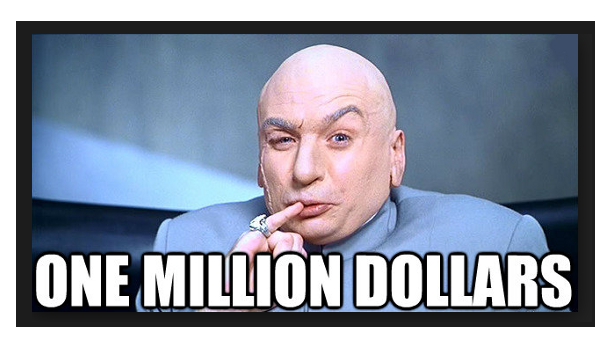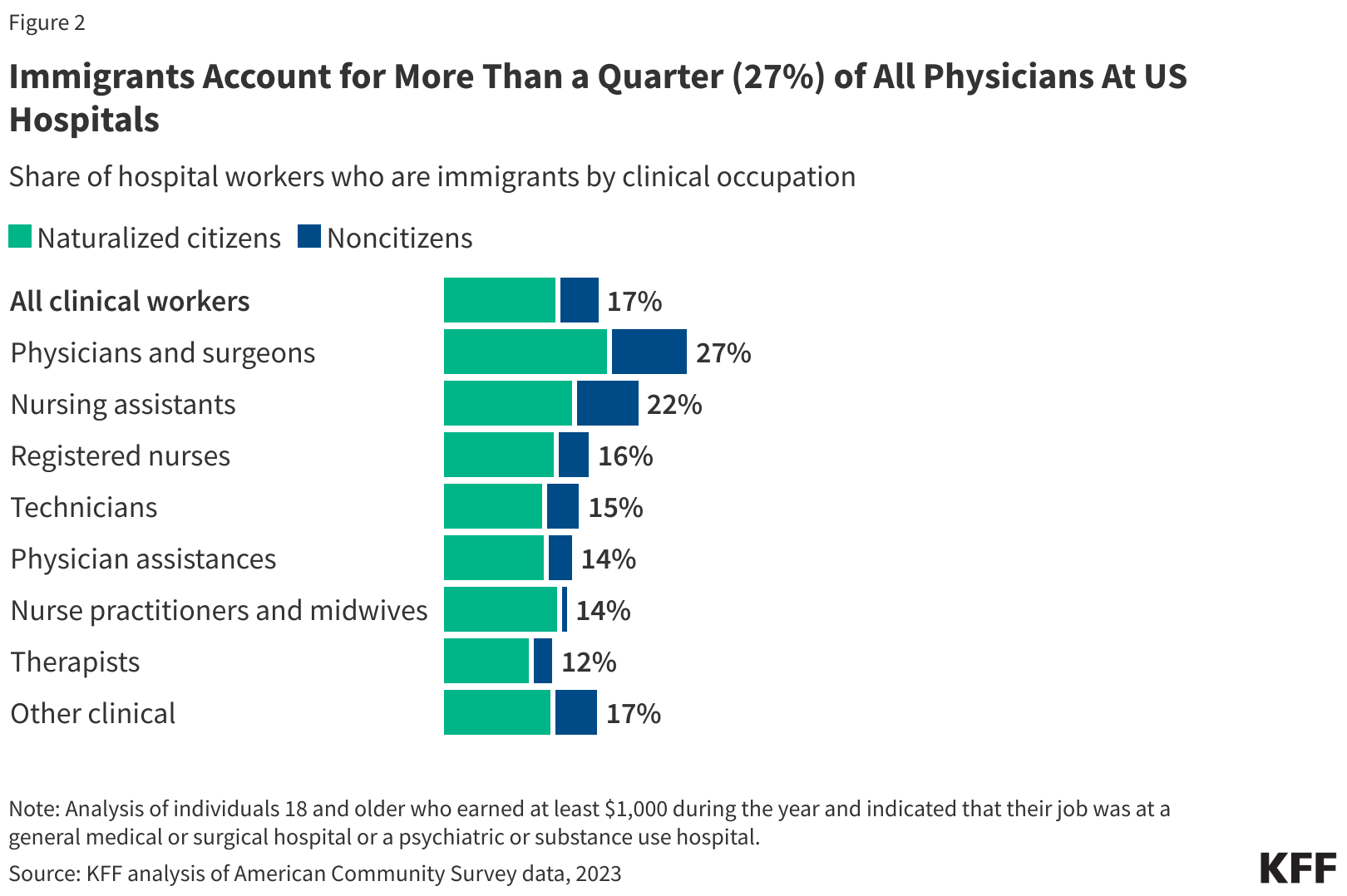Hey, Doctor: Your Burnout’s About To Get A Whole Lot Worse
What H1B visa restrictions mean for your burnout
On September 19th, the President of the United States signed an executive order, one that effectively guts the immigration of many high-skilled workers* into the US—including in healthcare.
Specifically, the executive order says
The entry into the United States of aliens as nonimmigrants to perform services in a specialty occupation under section 101(a)(15)(H)(i)(b) of the INA, 8 U.S.C. 1101(a)(15)(H)(i)(b), is restricted, except for those aliens whose petitions are accompanied or supplemented by a payment of $100,000.
In other words, unless an employer is willing to foot an extra hundred grand, no one can come into the US to work in a “specialty occupation” —including healthcare.
For those of us in healthcare, this is going to hit.
Hard.
One million dollars (Source)
American Health Relies On Immigrants
First, let’s get clear on some facts:
29% of all hospital maintenance workers are immigrants.
So are 27% of all doctors working in US hospitals
22% of all nursing assistants, and
16% of all registered nurses
(Full disclosure, I’m in the 27%)
Source: Kaiser Family Foundation
And we’re relying on immigrant labor more now than ever before. In 2010, only 16% of hospitals hired foreign-educated nurses. That number doubled to 32% of hospitals in 2022. And the number of hospitals who plan to hire even more foreign-trained workers next year has risen seven-fold!
Also! Foreign-born medical professionals disproportionately work in underserved areas of this country. They work the jobs that physicians who are American citizen don’t want to take.
Although some of us are here as naturalized citizens, not all of us are. Roughly 8% of physicians working in U.S. hospitals are here on work visas. Like the H1B.
In other words, immigrants support every corner of the healthcare sector. We are the scaffolding on which the entire house of cards is built. Knock out a scaffold and…well, people will die.
Fewer Providers, More Death
One of the worst parts about writing about public health is how many times I have to say, “People will die.”
But…sadly, here we are.
This executive order means people will die.
There’s a very, very clear, negative correlation between access to fully trained healthcare staff and patient outcomes.
In other words, the less access you have to doctors, the more likely you are to die.
Fewer Providers, More Burnout
OK, but maybe this executive order is better for American doctors?
That’s the pitch, at least. And it’s deeply, crucially, and predictably wrong.
If this executive order goes into effect, your burnout’s about to get a whole lot worse.
Here’s how it’ll work.
→ Fewer physicians in rural areas means worse waiting times and longer travel for patients. And that means that when patients finally get to a doctor, their diseases will have had time to get more serious.
→ Fewer doctors and worse disease means more patients have to be referred to urban centers (which have also lost their own doctors to visa restrictions)
→ All of that means that when patients finally get to see us, wherever we are in the medical system, their diseases will be worse, our treatments will be harder, and more of them…will die.
Already, more than half of US physicians are burnt out and thinking of quitting. And you know what the biggest drivers of that burnout are? Overwork and poor patient outcomes.
In this scenario, you’re going to be asked to do more, with fewer resources, and all for worse outcomes.
Which will make your burnout even worse
Which will drive more people out medicine
Which… will make burnout even worse in the people that are left.
In other words:
→ Fewer providers → more overwork → worse patient outcomes
→ More overwork and worse outcomes → more burnout → more resignations
→ More resignations → fewer providers
Repeat. Until the system collapses. Or you do.
What’s Next for You?
Policies like this are destabilizing. The courts will likely push back. Employers will likely object. Maybe the courts will strike this down. Or maybe the President will relent. Or maybe he’ll decide his order doesn’t apply to healthcare.
Even so. The courts are slow. The President is fickle. And in the meantime, the executive order has thrown the entire market into disarray.
In the meantime, you need to prepare yourself. Can you answer these questions?
If you had to leave medicine today, do you know what you’d do?
Do you have a kill switch? In other words, is there a personal line you won’t let the system cross?
What does your financial runway look like? Have you ever looked at it objectively, or are you operating on a hunch?
Do you have any sources of income outside of your medical work?
Hard questions, yeah. Hard decisions.
But without a solid answer to these four questions, you’re also making a decision. You’re deciding that the healthcare system can grind you to powder, and you’ll take whatever it gives you.
Friend, things are going to get worse before they get better.
Can you weather this storm?
Don’t have an escape plan? Can’t answer those four questions? I couldn’t either, once. I got out, and I want to help you do the same. Here’s how to work with me:
→ Check out my courses here. They range from 4 weeks to a year, and they take you from “what the heck do I do next” all the way to clarity and a step-by-step plan that honors both your calling and your right to thrive. Click here to apply!
→ Want more weekly content about making hard decisions with confidence and clarity? Join my mailing list!
Footnote
*I absolutely despise the “skilled” vs. “unskilled” work dichotomy. All work is skilled work, and calling work that requires post-secondary education “skilled” is elitist as hell. So, please, if you’ve seen / used less inequitable wording, let me know in the comments below.



